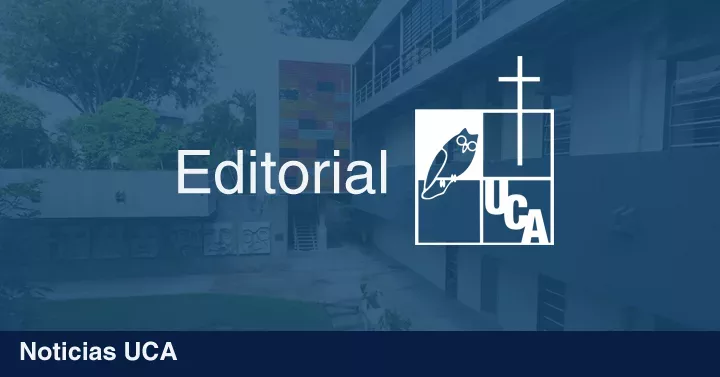Not long ago, a summary was published of the 228 observations that the Salvadoran State received at the end of 2024 during the human rights review that the United Nations periodically conducts in all countries. The recommendations revolve around four themes. The first is titled “Strengthening the Justice System”; the other three are “Ensuring the Right to Equality,” “Improving National Human Rights Mechanisms,” and “Expanding Access to Basic Services Such as Health, Education, and Social Security.” While the latter three address longstanding issues in the country that remain unresolved, the strengthening of the justice system—also a perennial concern—now carries fresh implications that warrant its prominent placement in the summary.
Indeed, the 40 months under the state of exception have laid bare the justice system’s glaring inadequacies, its contempt for the Constitution, and its disregard for international legal norms. To the traditional plagues of sluggishness, corruption, and unequal treatment in the courts have been added a torrent of illegal detentions, an utter failure to investigate and prosecute according to international parameters and standards, and a systemic indifference to human rights. According to the United Nations publication, the Salvadoran State “fully accepts” the need to safeguard the human rights of those deprived of liberty, ensure access to a lawyer, and provide avenues to challenge detention. It further commits to investigating human rights violations during periods of incarceration and to implementing policies that alleviate prison overcrowding. And it takes note of the request from numerous countries to allow family visits for detainees.
Six months after these official responses, not one has been fulfilled; on the contrary, the pervasive disregard for due process and human rights has only intensified. While lofty intentions are professed on the international stage, domestically the rhetoric against human rights persists, along with a stubborn resolve to keep a substantial number of Salvadorans detained and isolated, stripped of any means of defense. For someone deprived of liberty for nearly three years to lack effective legal counsel is tantamount to kidnapping, no matter how it is dressed up with excuses about public safety. A judicial system that fails to properly oversee legal proceedings blatantly violates due process. In a truly democratic nation faithful to its Constitution, holding people in detention and imprisonment for extended periods without access to a defense attorney or a trial would render the entire process null and void.
As these abuses drag on, it becomes ever easier for any entrenched power—formal or informal—to trample on individuals. The recent arrests of human rights defenders compound a situation that, just over six months ago, drew sharp rebuke from the United Nations. If civil society is not heeded and the state of exception—which routinely unveils new depths of cruelty—is not dismantled, there will be no decent future nor any hope for harmonious coexistence.
UCA: https://noticias.uca.edu.sv/editoriales/ausencia-de-justicia
Ausencia de justicia
Hace poco se publicó un resumen de las 228 observaciones que el Estado salvadoreño recibió a finales de 2024 en el examen de derechos humanos que la ONU realiza periódicamente en todos los países. Las recomendaciones giran en torno a cuatro temas. El primero lo titulan “Fortalecer el sistema de justicia”; los otros tres son “Garantizar el derecho a la igualdad”, “Mejorar los mecanismos nacionales de derechos humanos” y “Ampliar el acceso a servicios básicos como la salud, la educación y la seguridad social”. Si bien los tres últimos responden a problemas que en el país vienen de lejos y que siguen sin resolverse, el fortalecimiento del sistema de justicia, también un tema de vieja data, tiene hoy connotaciones nuevas que justifican su posición destacada en el resumen.
En efecto, los 40 meses de vigencia del régimen de excepción han mostrado de modo evidente la incapacidad del sistema de justicia, el irrespeto a la Constitución y la falta de apego al derecho convencional. A la lentitud, corrupción y desigualdad en el trato judicial se suman las numerosas detenciones ilegales, la incapacidad de investigar y enjuiciar desde parámetros y estándares internacionales, y la despreocupación sistemática en el ámbito de los derechos humanos. Según la publicación de las Naciones Unidas, el Estado salvadoreño “acepta plenamente” la necesidad de garantizar los derechos humanos de las personas privadas de libertad, el acceso a un abogado y la posibilidad de recurrir la detención. Se compromete, además, a investigar la violación de derechos humanos durante el tiempo de privación de libertad y a aplicar políticas que reduzcan el hacinamiento en las cárceles. Y toma nota de la petición de un buen número de países de permitir la visita familiar a los detenidos.
Seis meses después de estas respuestas estatales, ninguna de ellas se ha cumplido; más bien, la situación de irrespeto generalizado al debido proceso y a los derechos humanos se ha agudizado. Si en el ámbito internacional se declaran buenos propósitos, en el interior del país permanece el discurso contra los derechos humanos y el empecinamiento en mantener detenidos y aislados, sin posibilidad de defensa, a un buen número de salvadoreños. Que una persona privada de libertad durante casi tres años carezca de defensa legal efectiva es equivalente a un secuestro, por mucho que ello se pretenda justificar con excusas de seguridad ciudadana. Un sistema judicial que no tutela efectivamente los procesos legales vulnera claramente el debido proceso. En un país en verdad democrático y obediente a la Constitución, mantener personas detenidas y encarceladas por largo tiempo sin que puedan entrevistarse con un abogado defensor y sin que se realice juicio llevaría a la nulidad del proceso.
En la medida en que este tipo de hechos se prolongan, es cada día más fácil que cualquier poder establecido —ya sea formal o informal— abuse de las personas. Las recientes detenciones de defensores de derechos humanos empeoran una situación que hace poco más de medio año generó críticas por parte de la ONU. Si no se escucha a la sociedad civil ni se revierte un régimen de excepción que con regularidad muestra nuevas formas de crueldad, no habrá futuro decente ni sana convivencia.
UCA: https://noticias.uca.edu.sv/editoriales/ausencia-de-justicia

